
Ted has 18 years of experience representing Kitchener on a Regional body, as an elected Trustee with the Waterloo Region District School Board. Four times he was chosen as the Chairperson of the Board by his peers and four times as Vice Chairperson. He has managed budgets of over $800 million, and served on budget and audit committees. He has chaired the special education and environmental advisory committees, and served on virtually every committee of the Board.

Ted has served the residents of Kitchener as a girls hockey coach, boys and girls soccer coach, youth group leader, and on various boards and committees, including as vice chair of the Mennonite Coalition for Refugee Support, vice chair of the Society for Technical Communicators, vice president of Kitchener Minor Hockey, vice chair of the Waterloo Education Foundation and vice chair of the Huron Natural Area steering committee.

Ted is a self-employed technical communicator. He has worked in the local high tech sector as a software developer, technical writer, instructional designer, team leader, manager and continuous improvement champion. Ted believes in data-based decision-making and in finding better ways of doing things.
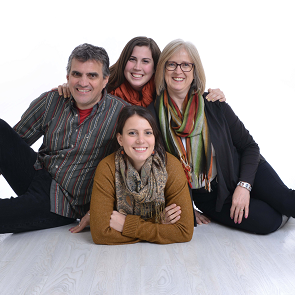
Ted has lived with Tracy in the same house in downtown Kitchener for 25+ years and in Waterloo Region for almost four decades. They raised their two daughters here. He has a vision for the Region as a collection of neighbourhoods with socially active streets, recreational opportunities, vibrant arts and entertainment scenes, community policing, shops and cafés, and housing options for everyone.
Kitchener deserves...
Affordable housing for first-time buyers and people on assistance, seniors aging in place and families with young children, single parents, students and young professionals, newcomers and people who require support. Everyone deserves a suitable place to call home.
Roads designed and maintained for the safety and comfort of pedestrians and cyclists, children and seniors, public transit and horse and buggies. We must be a welcoming community, safe for everyone.
Decision-making that considers the triple bottom line: fiscal responsibility, social compassion and environmental sustainability. Our fiscal resources are limited, but our impact on people and the planet is immense.
A healthy community with a thriving arts scene, cultural and recreational opportunities, heritage preservation and engaged citizens. A healthy community requires social infrastucture, as well as physical infrastructure.
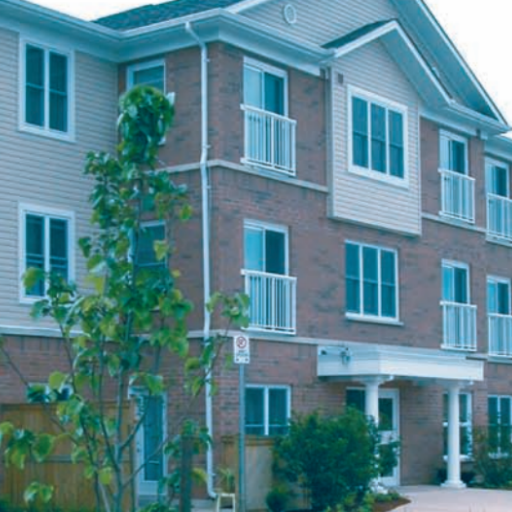
Housing diversity means building housing that is affordable for first-time buyers and people on assistance, seniors aging in place and families with young children, single parents, students and young professionals, newcomers and people who require support. This is particularly important along the transit lines.
We need to maintain the character of our neighbourhoods, but include diverse types of housing units, such as apartments, town homes, tiny houses, and single-family homes for people with a range of needs. While intensification in the downtowns is great, we shouldn't only be building condos with one or two bedrooms that few can afford. In the suburbs, we need to think outside the detached, three- and four-bedroom box.
The Region can help address these issues not only by directly developing Region-owned properties to add new affordable and supportive housing units, but also by providing incentives to not-for-profit and for-profit developers to create a diverse range of housing options.
The United Nations recognises that "everyone has the right to a standard of living adequate for the health and well-being of himself and of his family, including housing and necessary social services."
Everyone deserves a suitable place to call home.
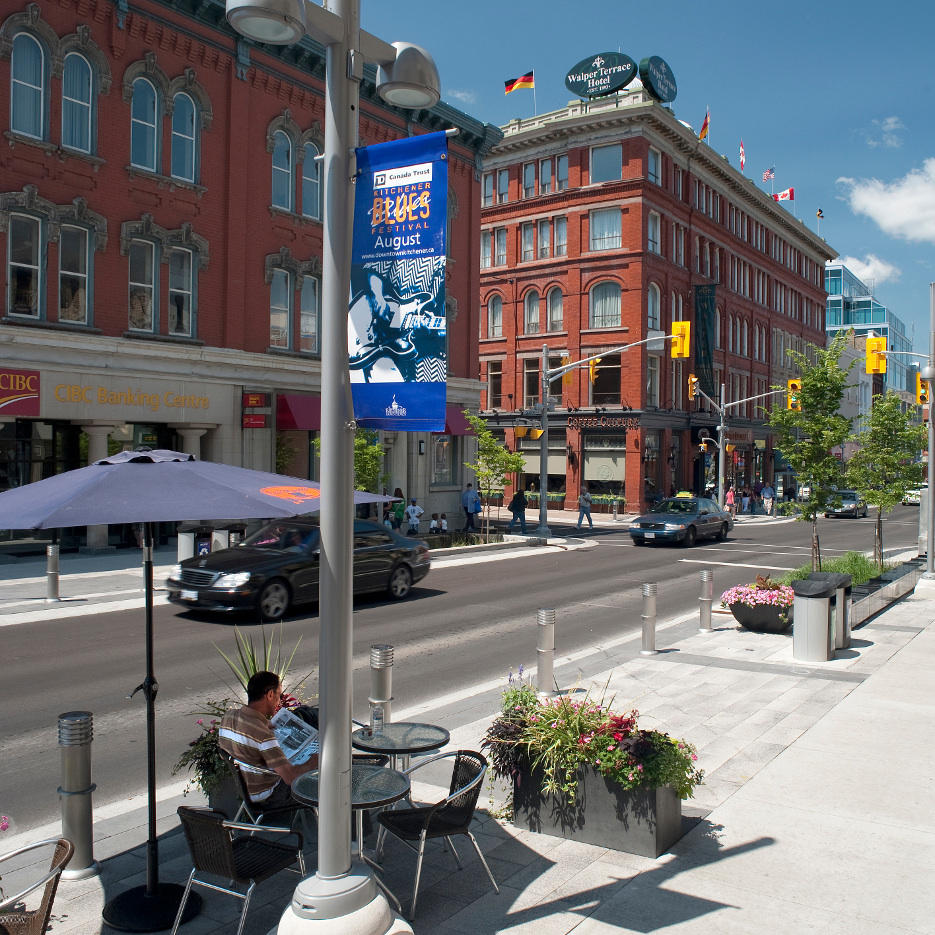
Complete streets are roads designed and maintained for the safety and comfort of everyone, regardless of their age, abilities or mode of transportation. They provide safe and comfortable travel for those walking, cycling, taking public transit, driving automobiles or riding a horse and buggy. They provide safety for first responders, road maintenance workers and delivery people.
Besides increasing safety, a complete streets policy can create a sense of neighbourhood by improving social interaction, reduce urban sprawl by encouraging intensification, and increase property values. Rather than designing our communities for automobiles, we need to design for people.
We must be a welcoming community, safe for everyone.
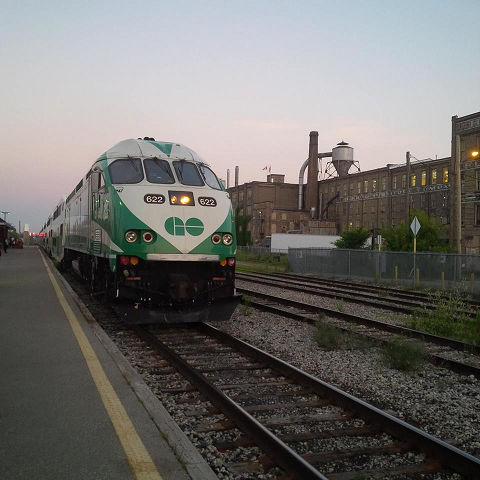
Reliable Transit runs frequently, stops at all major destinations, and is accessible and affordable.
With the introduction of the ION and the rapid population growth of our region, the next few years are critical for our public transit system. Council needs to provide strong leadership on transit and more critical oversight: the ION project is $100 million over budget, 15 months behind schedule and hasn't started running yet.
Our transit system needs to be convenient enough that it reduces our reliance on private vehicles and be affordable enough for people living in low income. We need to align our bus routes with the ION and provide more frequent service on routes feeding into the ION. We need to provide a subsidy program that ensures people living on assistance can afford to use transit for their daily needs.
We also need to look at solving the GTA commute, and that won't happen by continually adding more lanes to the 401. Regional Council must work with the Province to ensure all-day, two-way Go Train service, with trip times of less than 90 minutes to Toronto’s Union Station.
We need a transit system that provides a convenient way to get around, not just a means of last resort.
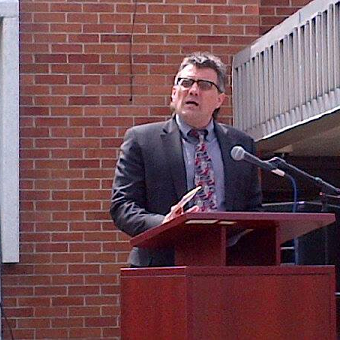
Big Picture thinking considers the triple bottom line — fiscal responsibility, social compassion and environmental sustainability — in all decision-making. Rather than only considering the financial benefits and costs, we need also to consider the benefits and costs to our social well-being and environmental health.
The new provincial government has already reduced funding to the Region while increasing the need for social assistance and eliminating some environmental protections. The next council will have to make difficult decisions about how to meet the challenges caused by these actions. Council can't simply increase property taxes because property taxes are regressive, taking a larger share of family income the less a family earns.
Our fiscal resources are limited, but our impact on people and the planet is immense.
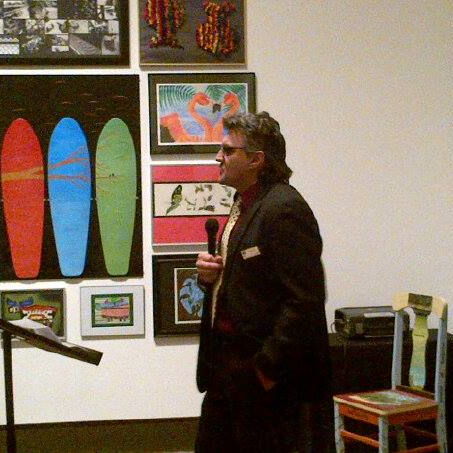
Community wellness requires a strong arts scene, cultural and recreational opportunities, heritage preservation and engaged citizens.
Arts, culture, recreation and heritage all play important roles in enriching the lives of residents and attracting investment to our region. We need to promote arts and culture organizations and events, support recreational facilities and opportunities, and protect our natural and built heritage. And we need to explore ways to more fully engage our citizens in vision-setting and decision-making.
Community wellness also means having world-class health care and social services, and providing care for our most vulnerable citizens.
A healthy community is one with strong social infrastructure, as well as physical infrastructure.
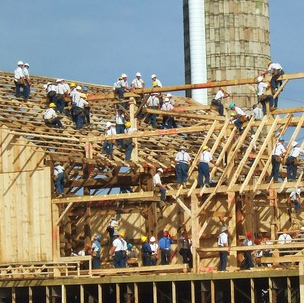
Caring for our most vulnerable residents has been at the heart of Waterloo Region since the beginning, and we need to continue that tradition of a caring community.
The Region needs to increase the supply of housing for people with low incomes and for people on assistance, and provide training and pathways to employment for our most vulnerable citizens.
Caring for our most vulnerable means having public health and health care professionals assisting people with mental health and addiction problems. Finding ways to provide more direct and timely mental health support could reduce police involvement in these issues and allow police to deal with other public safety needs. We can also improve training for police officers, so they can be more sensitive when dealing with our vulnerable population.
As a Region, we are only as strong as the services that we provide to our most vulnerable residents.
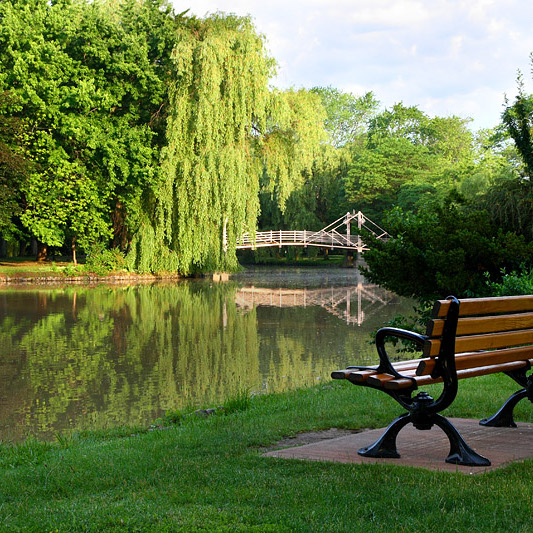
Environmental leadership is required to create a sustainable future.
Comments made during the recent provincial election campaign suggest that we have to be very active in protecting the greenbelt and ensuring that urban sprawl is not allowed to resume. Regional council needs to hold firm to the countryside line to protect our parks, family farms and rural areas. We need to intensify the community cores and promote alternatives to automobiles, while working to strengthen our neighbourhoods.
We need to encourage reduction, reuse and recycling. With markets for recyclables shrinking, we need to reduce the amount of garbage we create. We should support local businesses, products and agriculture, prioritize the preservation and restoration of our natural environment, and promote reuse and recycling programs and industries.
Every budget decision needs to consider the costs and benefits to our environment. We need to put policies in place to encourage development of energy efficient buildings and neighbourhoods.
Our future generations depend on us to take the right action now.

Economic Health is required to maintain and expand on the social and physical infrastructure we currently count on.
Many of our recent economic gains have been because of the local high tech community of which I am a part, and we need to continue to support it and foster it, while also supporting the local manufacturing and service industries.
To fully support the high tech, manufacturing, and service industries, Regional Council must work with these groups to ensure that the Province establishes all-day, two-way Go Train service to Toronto.
We need to increase support for our most vulnerable citizens and provide the necessary training and pathways to employment, and work more closely with our school boards, colleges and universities to ensure everyone has the education, training or retraining they require and desire.
We need to increase efforts for economic development through the Waterloo Region Economic Development Corporation and support job-generating tourism through the Waterloo Region Tourism Marketing Corporation.
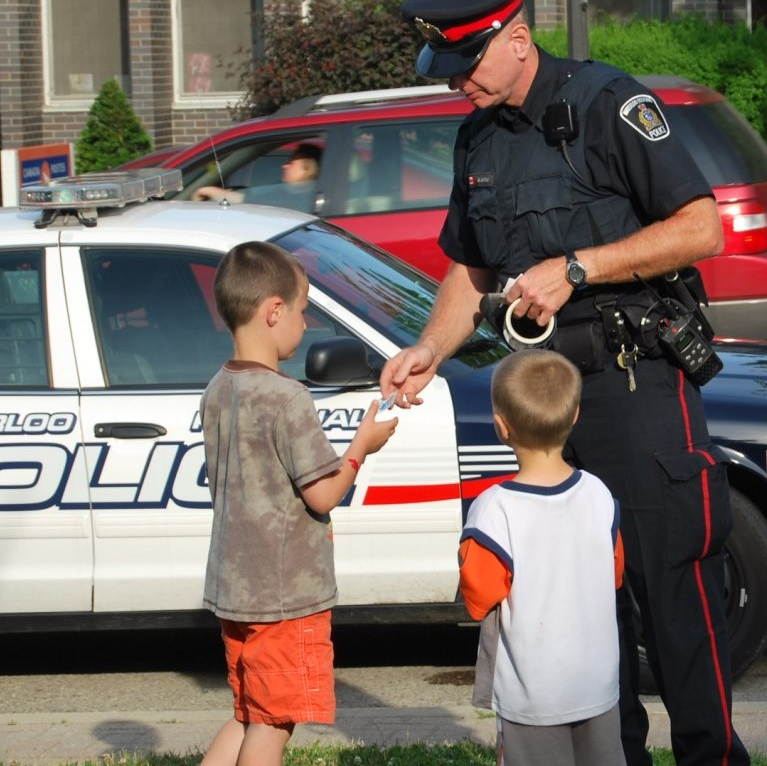
Community Policing ensures that our police are integrated members of our neighbourhoods, working together with the community in crime prevention, law enforcement and assisting those who need help.
Our police are essential first responders and we need them to be efficient, effective and provide value for money. To increase their visibility, our Police need to be freed to get out from behind their desks, out of their cars, and to spend their efforts where people are, in our downtowns and neighbourhoods, walking and cycling among us, to create a small town vibe.
The Region needs to avoid the urge to keep spending more on police services as a response to real or perceived increases in crime. By creating a Region that is a collection of neighbourhoods, we can avoid some of the crime pressures of a big city.
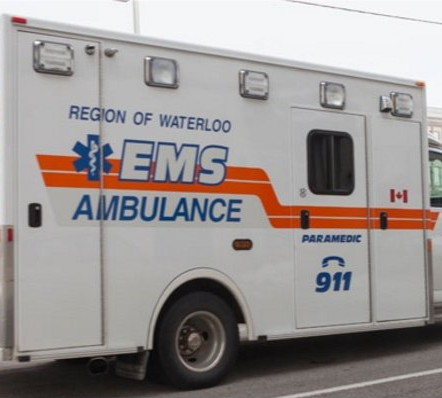
Paramedic Response times in Waterloo Region are among the worst in Ontario: a person who experiences a sudden cardiac arrest in Waterloo Regiion is statistically more likely to end up with permanent brain damage than in any other place in Ontario. Clearly, this is an issue that the Region needs to address.
Our unit utilization is nearly at the upper threshold, beyond which we can expect to see even poorer response times for our patients, increased stress for our workers, and higher maintenance costs for our vehicles.
We can expect increased call loads over the next years as our population both grows and ages, yet we have clearly not increased our Paramedic Services at the same rate as our Region has grown over the past decade, so we have some serious catching up to do. We need more paramedics, more equipped vehicles and probably a building to house them.
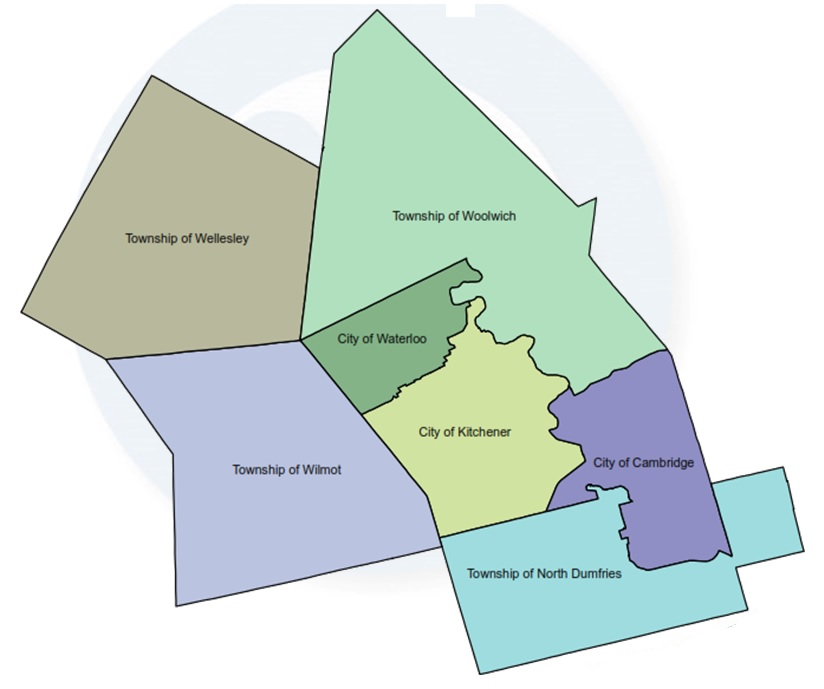
One-Tier Government, as discussed recently in The Record, is a decision that is largely outside of our control. Previous locally initiated attempts to amalgamate have not been successful, but the current provincial government may yet require it of us.
Simplifying who does what and streamlining delivery of services may be a good thing, but not at the cost of our sense of community. I believe we can foster our sense of community in either case.
Whether we amalgamate or not, we are on the verge of becoming a large metropolitan area, as eight municipalities or as one, and the important thing is to maintain our hometown feel. I believe the best way to do this is by strengthening our neighbourhoods through housing diversity and complete streets (as discussed above).
Ted hopes to reach each of the nearly 150,000 eligible voters in Kitchener before election day. That is going to require a lot of flyers, signs and advertisements, all of which cost money. Ted definitely appreciates any donation you can provide.
You can donate in any of these four ways:
© 2018 Ted Martin. All rights reserved | Design by W3layouts